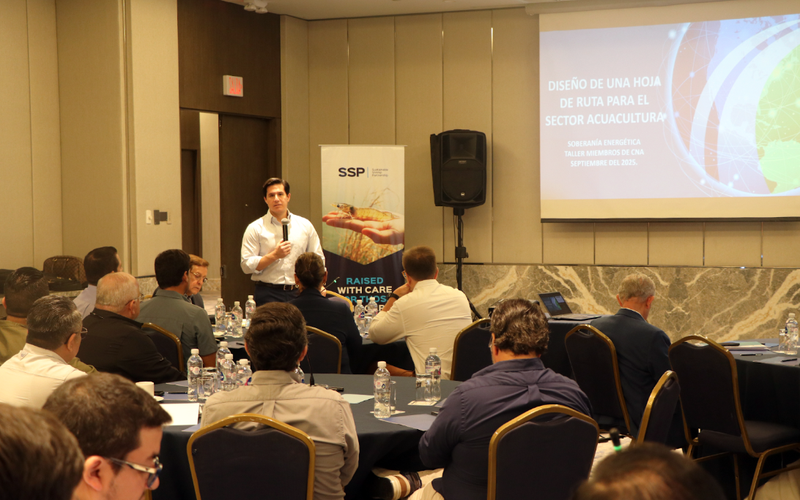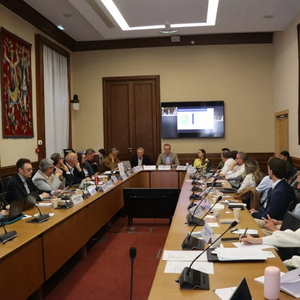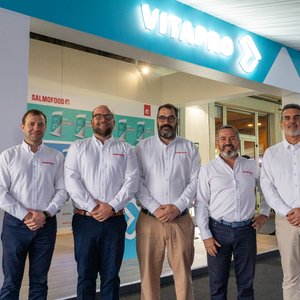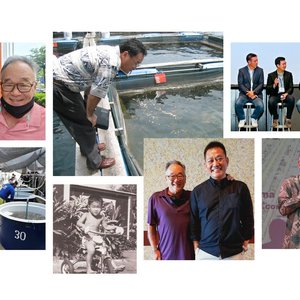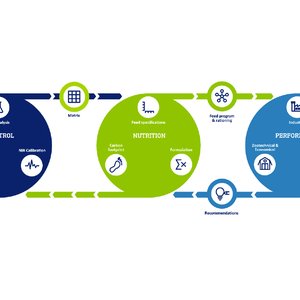The Sustainable Shrimp Partnership (SSP) and the National Chamber of Aquaculture (CNA) announced the launch of the Energy Working Group, a collaborative platform for dialogue and coordination designed to enhance the shrimp sector’s energy security and develop a practical, scalable roadmap for its transition to cleaner energy sources.
During the inaugural session, held at the Santa Cruz lounge of the Hilton Colón Hotel in Guayaquil, Ecuador, SSP and CNA, in collaboration with the Corporation for the Promotion of Exports and Investments (CORPEI), started the first phase of their action plan. With more than 30 participants, including producers, processors, and feed companies, this stage focused on identifying the bottlenecks that limit a faster transition to cleaner energy in shrimp farming areas. The findings will serve as the foundation for developing a regulatory and operational framework to strengthen the sector’s energy reliability.
José Antonio Camposano, CNA’s Executive President, stated in a press release: “The shrimp sector, the country’s main source of foreign exchange and its largest private employer, requires stable and reliable energy to sustain its growth and long-term viability. Current demand exceeds the national electricity system’s capacity for generation, transmission, and distribution, and the state alone does not have the resources to meet this need. This is why private investment and close coordination with authorities are essential to advance energy projects. The Energy Working Group is designed to drive these efforts.”
Pamela Nath, SSP’s Director, said: “Transitioning to a cleaner energy matrix is no longer just an environmental commitment, but also a key strategy to strengthen competitiveness and modernize the shrimp sector. To advance decisively in this transition, it is essential to understand the different realities of the sector, remove identified bottlenecks, and support the process with clear regulatory frameworks and regulatory stability that generate confidence and incentives for investment.”
Additionally, Eduardo Egas, CORPEI’s Executive President, added: “One of the opportunities for improvement in the industry is the adoption of cleaner and more efficient energy sources to replace fossil fuels. This shift requires a collective vision and a common roadmap to scale solutions, attract investment, and remove barriers. With the Energy Working Group, we aim to coordinate this effort and accelerate change in the sector.”


